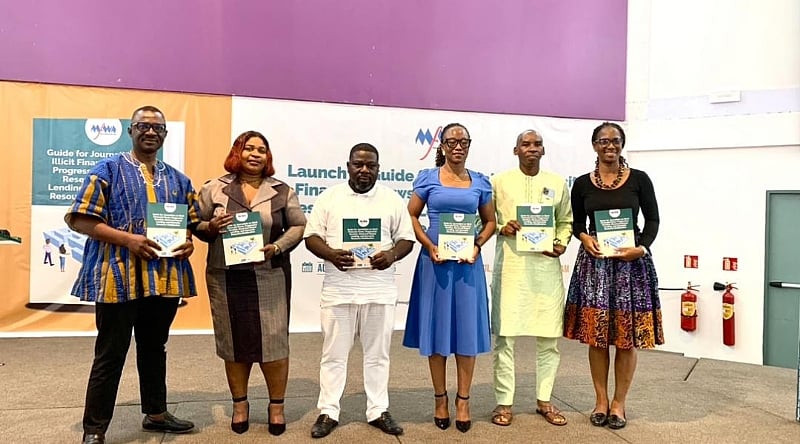The Media Foundation for West Africa (MFWA), in collaboration with Oxfam in Ghana, has unveiled a comprehensive media guide designed to empower journalists in their reporting on critical economic issues. This guide, launched under the “Expose the Flow” initiative funded by the Norwegian Agency for Development Cooperation (NORAD), focuses on illicit financial flows (IFFs), progressive taxation, resource-based lending, and domestic resource mobilization within Ghana. The launch, held at the British Council in Accra, signifies a significant stride towards equipping journalists with the necessary tools and knowledge to investigate and expose the intricate web of financial malpractices that hinder Ghana’s development. The guide serves as a timely intervention, addressing the pressing issue of IFFs, which are estimated to drain approximately $3 billion annually from Ghana’s economy. This substantial loss deprives the nation of crucial resources that could be allocated to vital development projects in key sectors such as health, education, and infrastructure.
The 142-page guide serves as a comprehensive resource for journalists, providing clear definitions of complex financial terms, investigative techniques, ethical considerations, and key questions to pursue when reporting on these issues. Furthermore, the guide incorporates real-world case studies, offering practical examples and insights into the mechanics of IFFs. It delves into the intricacies of Ghana’s political economy, illustrating the interplay between IFFs, inadequate tax systems, and corruption, and how these factors collectively undermine the country’s developmental capacity. By providing a thorough understanding of these issues, the guide aims to empower journalists to report effectively and contribute to greater transparency and accountability in financial matters.
The launch of the media guide was met with enthusiasm from key figures in the Ghanaian media landscape. Rosemond Ebi-Adwo Aryeetey, MFWA’s Senior Programme Manager for Media and Democracy, emphasized the guide’s significance in bridging a critical knowledge gap within the media. She highlighted the often-limited understanding of IFFs among journalists and stressed the guide’s role in equipping them with the necessary tools and insights to identify, understand, and report on these complex financial flows. Ultimately, this enhanced reporting aims to promote transparency and accountability within the financial sector.
Rebecca Ekpe, Vice President of the Ghana Journalists Association, lauded the launch as a pivotal step in the pursuit of economic justice. She urged journalists to move beyond superficial reporting and delve into the systemic issues underpinning financial malpractices, such as domestic resource mobilization and tax evasion. Emphasizing the detrimental effects of IFFs and tax evasion on Ghana’s resources and development, she underscored the guide’s role in empowering journalists to expose these issues and amplify the voices of those most affected.
Jeorge Wilson Kingson, Executive Secretary of the Private Newspapers and Online Publications Association of Ghana (PRINPAG), emphasized the importance of responsible journalism in uncovering economic sabotage. He called for the guide to be adopted as the standard for economic reporting in Ghana, urging journalists to utilize it as a tool to challenge power structures with evidence-based reporting and inform citizens with clarity and context.
The pervasiveness of IFFs, manifesting in various forms such as tax evasion, money laundering, trade mispricing, and offshore wealth concealment, poses a significant threat to Ghana’s economic development. Perpetrated by multinational corporations, political elites, and individuals, these practices undermine government revenue, exacerbate inequality, and hinder the country’s progress. Recognizing the crucial role of the media in combating these illicit activities, the MFWA and its partners have developed this comprehensive guide to empower journalists to investigate, expose, and ultimately contribute to curbing IFFs and promoting financial transparency and accountability. The guide’s emphasis on practical skills, ethical considerations, and real-world case studies underscores its commitment to fostering responsible and impactful journalism in the fight against financial crimes.


